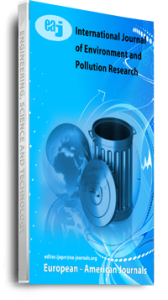The management of transboundary watercourses poses enormous problems to the States that share them since the advent of the use of international watercourses for purposes other than navigation. This last aspect makes water the most used and coveted resource in the world, justifying both the value and rarity of this resource. The equitable use, protection, and non-conflictual sharing of international watercourses have always been subject to regulation based on a number of theoretical and conventional principles that vary from one context to another. These Doctrines and theories and principles enshrined in several international agreements, including the United Nations Convention on the Law of the Non-Navigational Uses of International Watercourses are currently constituting the modern rules governing the management of shared watercourses. This article aims to make a deep study of doctrines and theorical rules as well as conventional principles currently govern the management of international watercourses. in this purpose, the principles consecrated in the 1997 New York framework Convention adopted on 21 May and entered into force in 2014, will be deeply analyzed.
Modern rules governing the peaceful Management of international watercourses: From Doctrines and Theories to Conventional Principles
() , , (), –
Abstract
![]()
This work by European American Journals is licensed under a Creative Commons Attribution-NonCommercial-NoDerivs 4.0 Unported License
Recent Publications
Sustainable Environmental Biodiversity: Innovative Strategies for Future Remediation
Read Full Article »Impact Factor: 7.01
Print ISSN: 2056-7537
Online ISSN: 2056-7545
DOI: https://doi.org/10.37745/ijepr.13
Author Guidelines
Submit Papers
Review Status
British Journal of Marketing Studies (BJMS)
European Journal of Accounting, Auditing and Finance Research (EJAAFR)
European Journal of Business and Innovation Research (EJBIR)
European Journal of Hospitality and Tourism Research (EJHTR)
European Journal of Logistics, Purchasing and Supply Chain Management (EJLPSCM)
Global Journal of Human Resource Management (GJHRM)
International Journal of Business and Management Review (IJBMR)
International Journal of Community and Cooperative Studies (IJCCS)
International Journal of Management Technology (IJMT)
International Journal of Small Business and Entrepreneurship Research (IJSBER)
British Journal of Education (BJE)
European Journal of Training and Development Studies (EJTDS)
International Journal of Education, Learning and Development (IJELD)
International Journal of Interdisciplinary Research Methods (IJIRM)
International Journal of Quantitative and Qualitative Research Methods (IJQQRM)
International Journal of Vocational and Technical Education Research (IJVTER)
British Journal of Earth Sciences Research (BJESR)
British Journal of Environmental Sciences (BJES)
European Journal of Computer Science and Information Technology (EJCSIT)
European Journal of Material Sciences (EJMS)
European Journal of Mechanical Engineering Research (EJMER)
European Journal of Statistics and Probability (EJSP)
Global Journal of Pure and Applied Chemistry Research (GJPACR)
International Journal of Civil Engineering, Construction and Estate Management (IJCECEM)
International Journal of Electrical and Electronics Engineering Studies (IJEEES)
International Journal of Energy and Environmental Research (IJEER)
International Journal of Engineering and Advanced Technology Studies (IJEATS)
International Journal of Environment and Pollution Research (IJEPR)
International Journal of Manufacturing, Material and Mechanical Engineering Research (IJMMMER)
International Journal of Mathematics and Statistics Studies (IJMSS)
International Journal of Network and Communication Research (IJNCR)
International Research Journal of Natural Sciences (IRJNS)
International Research Journal of Pure and Applied Physics (IRJPAP)
British Journal of English Linguistics (BJEL)
European Journal of English Language and Literature Studies (EJELLS)
International Journal of African Society, Cultures and Traditions (IJASCT)
International Journal of Asian History, Culture and Tradition (IJAHCT)
International Journal of Developing and Emerging Economies (IJDEE)
International Journal of English Language and Linguistics Research (IJELLR)
International Journal of English Language Teaching (IJELT)
International Journal of Agricultural Extension and Rural Development Studies (IJAERDS)
International Journal of Animal Health and Livestock Production Research (IJAHLPR)
International Journal of Cancer, Clinical Inventions and Experimental Oncology (IJCCEO)
International Journal of Cell, Animal Biology and Genetics (IJCABG)
International Journal of Dentistry, Diabetes, Endocrinology and Oral Hygiene (IJDDEOH)
International Journal of Ebola, AIDS, HIV and Infectious Diseases and Immunity (IJEAHII)
International Journal of Entomology and Nematology Research (IJENR)
International Journal of Environmental Chemistry and Ecotoxicology Research (IJECER)
International Journal of Fisheries and Aquaculture Research (IJFAR)
International Journal of Horticulture and Forestry Research (IJHFR)
International Journal of Micro Biology, Genetics and Monocular Biology Research (IJMGMR)
International Journal of Nursing, Midwife and Health Related Cases (IJNMH)
International Journal of Nutrition and Metabolism Research (IJNMR)
International Journal of Public Health, Pharmacy and Pharmacology (IJPHPP)
International Journal of Weather, Climate Change and Conservation Research (IJWCCCR)
International Journal Water Resources Management and Irrigation Engineering Research (IJWEMIER)
British Journal of Psychology Research (BJPR)
European Journal of Agriculture and Forestry Research (EJAFR)
European Journal of Biology and Medical Science Research (EJBMSR)
European Journal of Botany, Plant Sciences and Phytology (EJBPSP)
European Journal of Educational and Development Psychology (EJEDP)
European Journal of Food Science and Technology (EJFST)
Global Journal of Agricultural Research (GJAR)
International Journal of Health and Psychology Research (IJHPR)
Global Journal of Arts, Humanities and Social Sciences (GJAHSS)
Global Journal of Political Science and Administration (GJPSA)
Global Journal of Politics and Law Research (GJPLR)
International Journal of Development and Economic Sustainability (IJDES)
International Journal of History and Philosophical Research (IJHPHR)
International Journal of International Relations, Media and Mass Communication Studies (IJIRMMCS)
International Journal of Music Studies (IJMS)
International Journal of Non-Governmental Organizations (NGOs) and Essays (IJNGOE)
International Journal of Physical and Human Geography (IJPHG)
International Journal of Sociology and Anthropology Research (IJSAR)
International Journal of Biochemistry, Bioinformatics and Biotechnology Studies (IJBBBS)
International Journal of Coal, Geology and Mining Research (IJCGMR)
International Journal of Geography and Regional Planning Research (IJGRPR)
International Journal of Library and Information Science Studies (IJLISS)
International Journal of Petroleum and Gas Engineering Research (IJPGER)
International Journal of Petroleum and Gas Exploration Management (IJPGEM)
International Journal of Physical Sciences Research (IJPSR)
International Journal of Scientific Research in Essays and Case Studies (IJSRECS)

